For best results print the cards using the Firefox Browser
Cards
(QUICK LINKS: Decks | plants | mammals | birds | | reptiles | fish | cephalopoda | insects | microbe | events
( scientist | project | modifier | technique |)

Sulphur-crested Cockatoo
Cacatua galerita


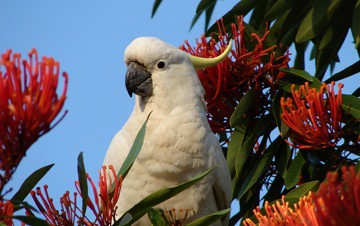
4 POINTS
• Cacatua galerita has a FLIGHT of 2.
• Cacatua galerita produces a very fine powder to waterproof itself.
Warm
Graphic by Joel Carlsonzazzle.com/joeyartist
Photo by Tatiana Geruswww.flickr.com/people/62938898@N00
The Sulphur-crested Cockatoo, Cacatua galerita, is a relatively large white cockatoo found in wooded habitats in Australia and New Guinea. They can be locally very numerous, leading to them sometimes being considered pests. They are well known in aviculture, although they can be demanding pets. In Australia, Sulphur-crested Cockatoos can be found widely in the north and east, ranging […] read more

Red Fox
Vulpes vulpes

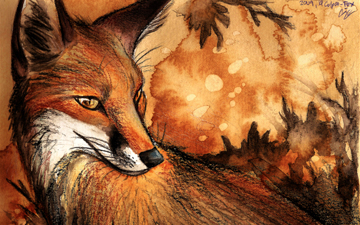
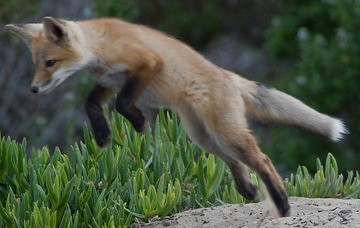
1 POINT
• Vulpes vulpes has a MOVE of 2
• Vulpes vulpes is a social animal. Red foxes live in groups which are led by one mated pair.
Cold, Cool, Warm
Graphic by Culpeo-FoxCulpeo-Fox.deviantart.com
Photo by Mike Bairdbairdphotos.com/
The Red Fox (Vulpes vulpes) is the largest of the true foxes, as well as being the most geographically spread member of the Carnivora, being distributed across the entire northern hemisphere from the Arctic Circle to North Africa, Central America, and the steppes of Asia. Its range has increased alongside human expansion, having been introduced to Australasia, where it […] read more

Lesser Roadrunner
Geococcyx velox

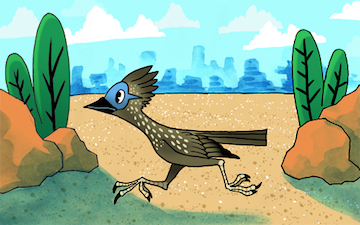
2 POINTS
• Geococcyx velox has a MOVE of 3
• Geococcyx velox can run at speeds of up to 20 miles per hour (32 km/h).
Warm, Hot
Graphic by Adam Smithrupted.deviantart.com/
Photo by Siegmund, Waltercommons.wikimedia.org/wiki/User:Wsiegmund
The Lesser Roadrunner, Geococcyx velox, is a large, long-legged member of the Cuckoo family, Cuculidae. The Lesser roadrunner resembles the Greater Roadrunner (Geococcyx californiana) in appearance and habit but is smaller and has a significantly shorter bill. Its breeding range is in southwestern Mexico, and north into the western side of the Sierra Madre Occidental […] read more

White Cattleya Orchids
Cattleya labiata


Sorry, there is no photo available. If you have one, please submit
here
.
3 POINTS
• Cattleya labiata has a SPREAD of 2.
• Cattleya labiata is an epiphyte: it grows on trees and rocks.
Warm
Graphic by Joel Carlsonzazzle.com/joeyartist
Cattleya (pronounced /ˈkætliː.ə/)[1] is a genus of 113 species of orchids from Costa Rica to tropical South America. The genus was named in 1824 by John Lindley after Sir William Cattley[2] who received and successfully cultivated specimens of Cattleya labiata that were used as packing material in a shipment of other orchids made by William Swainson. The genus is abbreviated C in […] read more

Eurasian Nuthatch
Sitta europaea

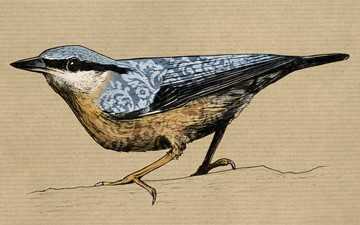
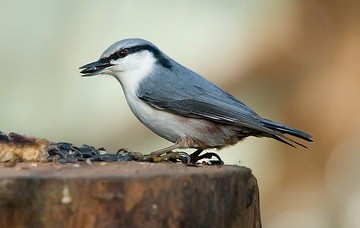
3 POINTS
• Sitta europaea has a FLIGHT of 2.
• Sitta europaea is the most common and most widespread nuthatch.
Cool, Warm
Graphic by Mark Sosbemarksosbe
Photo by Sergey Yeliseevwww.flickr.com/people/yeliseev/
The Eurasian Nuthatch, Sitta europaea, is a small passerine found throughout temperate Europe and Asia, although not in Ireland. It belongs to the nuthatch family Sittidae. This bird is the most common and most widespread nuthatch, and is often referred to just as the Nuthatch. It is a resident bird of deciduous woods and parkland, with some old trees for nesting. It feeds […] read more

Chilean Myrtle
Luma apiculata

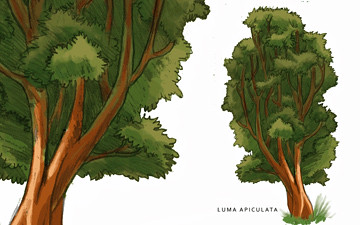
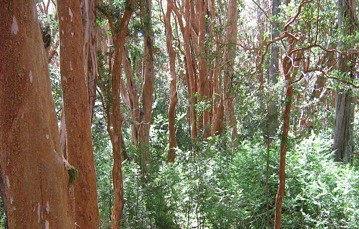
4 POINTS
• Luma apiculata has a SPREAD of 2.
• Luma apiculata has orange-brown bark which peels as it grows.
Warm
Graphic by Teh-Aguaráteh-aguara.deviantart.com/
Photo by Alfonsocommons.wikimedia.org/wiki/User:Alfonso%22
Luma apiculata, (Chilean Myrtle) is a species of tree in the genus Luma in the family Myrtaceae, native to the central Andes mountains between Chile and Argentina between 33 and 45° South Latitude. The Chilean Myrtle grows slowly, forming a small tree of around 10 to 15 meters, rarely 20 meters. Its trunk appears twisted and contorted and has smooth bark, coloured […] read more